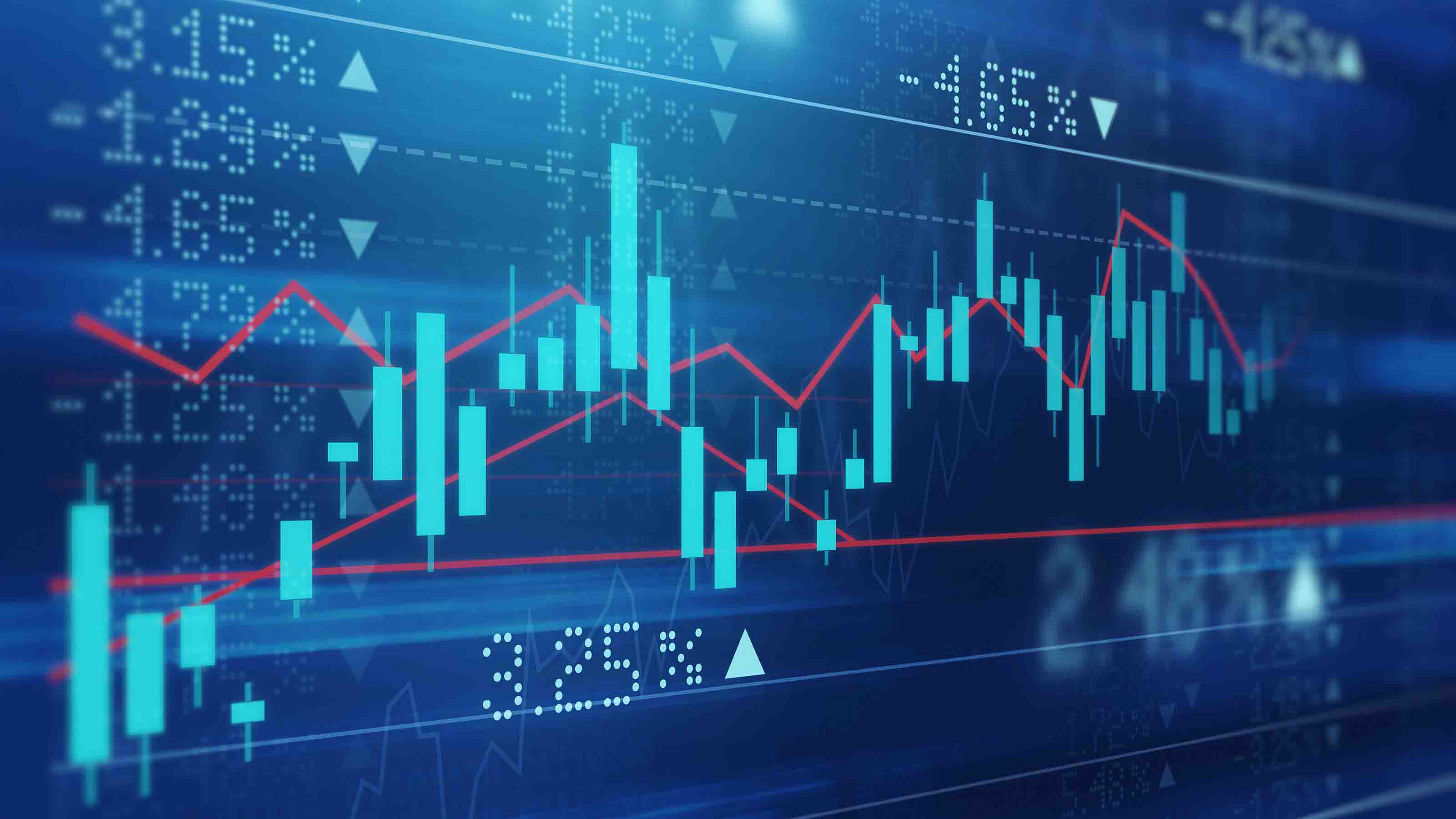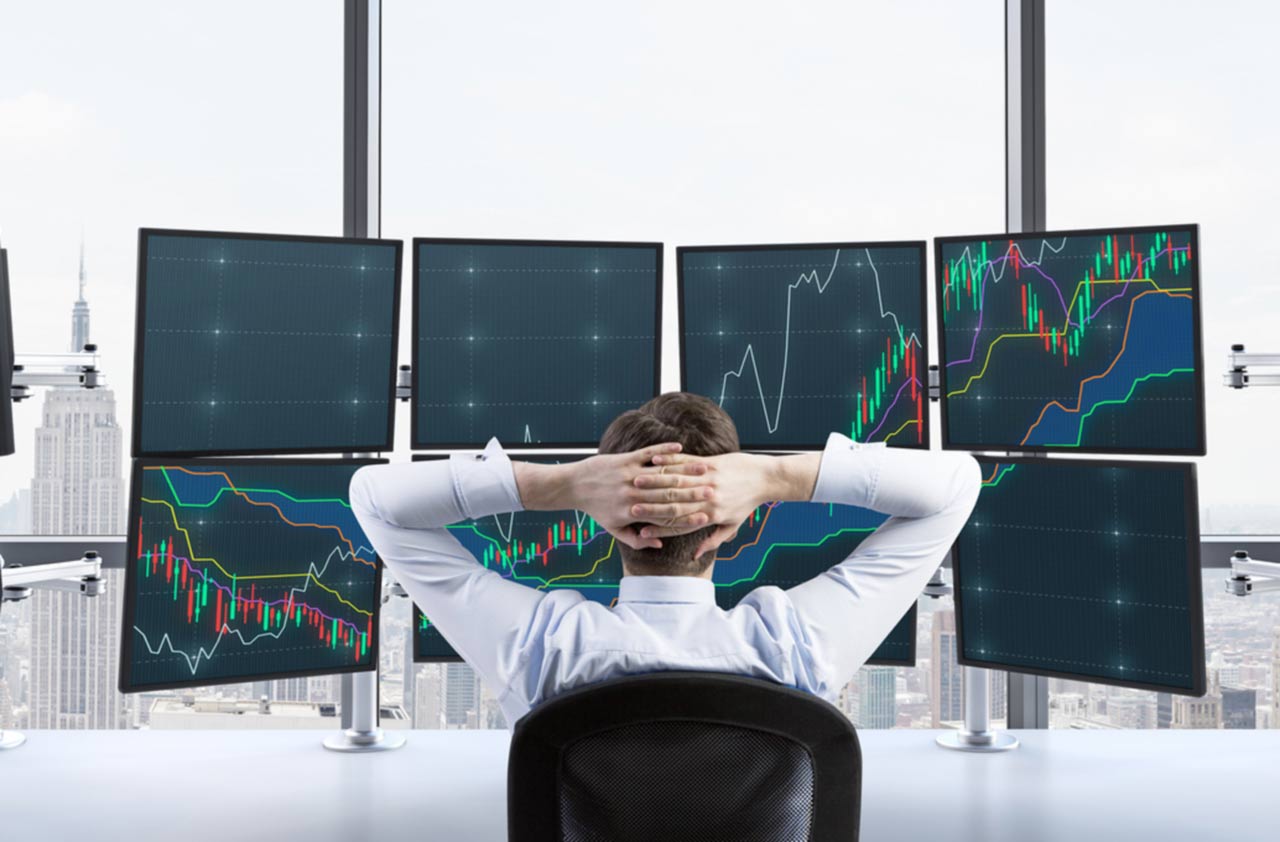My Investing Misstep
My Schwab account ballooned to $100,000. That's when the greed and day-trader mentality took over.


Profit and prosper with the best of Kiplinger's advice on investing, taxes, retirement, personal finance and much more. Delivered daily. Enter your email in the box and click Sign Me Up.
You are now subscribed
Your newsletter sign-up was successful
Want to add more newsletters?

Delivered daily
Kiplinger Today
Profit and prosper with the best of Kiplinger's advice on investing, taxes, retirement, personal finance and much more delivered daily. Smart money moves start here.

Sent five days a week
Kiplinger A Step Ahead
Get practical help to make better financial decisions in your everyday life, from spending to savings on top deals.

Delivered daily
Kiplinger Closing Bell
Get today's biggest financial and investing headlines delivered to your inbox every day the U.S. stock market is open.

Sent twice a week
Kiplinger Adviser Intel
Financial pros across the country share best practices and fresh tactics to preserve and grow your wealth.

Delivered weekly
Kiplinger Tax Tips
Trim your federal and state tax bills with practical tax-planning and tax-cutting strategies.

Sent twice a week
Kiplinger Retirement Tips
Your twice-a-week guide to planning and enjoying a financially secure and richly rewarding retirement

Sent bimonthly.
Kiplinger Adviser Angle
Insights for advisers, wealth managers and other financial professionals.

Sent twice a week
Kiplinger Investing Weekly
Your twice-a-week roundup of promising stocks, funds, companies and industries you should consider, ones you should avoid, and why.

Sent weekly for six weeks
Kiplinger Invest for Retirement
Your step-by-step six-part series on how to invest for retirement, from devising a successful strategy to exactly which investments to choose.
Back in June 2000, this magazine ran an article titled "True Confessions," which related the tale of one editor's foray into the dark excesses of the dot-com-era stock market. The author, who chose to remain anonymous, confessed not only to investing in a number of wildly inflated tech stocks but also to buying them — gasp — on margin. "In retrospect," he wrote, "I admit that I succumbed to greed and hubris, betraying the principles of responsible investing by playing the market with borrowed money."
If you haven't already guessed, the author was me. Five years earlier, I had opened a Schwab account with $10,000, invested in Microsoft and a few other solid prospects, and watched the account grow to $100,000. That's when the greed and day-trader mentality took over. I bought into the philosophy that corporate earnings didn't really matter in the internet era, that momentum would propel popular stocks ever higher. I started investing in companies whose products and services I didn't understand, and doing so with other people's money. Then the market crashed, and I got not one but two margin calls.
Volatility and valuation. The same impulsive mindset that pushed stocks to the breaking point in 2000 has parallels today in the cryptocurrency markets. A lot of novice investors have been buying bitcoin, watching its value swing wildly up and down. Like stocks 20 years ago and home prices 10 years ago, cryptocurrencies have crept into watercooler conversations. When our UPS guy reported that he has bought in, we took it as a sure sign that bitcoin has entered bubble territory.
From just $107.88 $24.99 for Kiplinger Personal Finance
Become a smarter, better informed investor. Subscribe from just $107.88 $24.99, plus get up to 4 Special Issues

Sign up for Kiplinger’s Free Newsletters
Profit and prosper with the best of expert advice on investing, taxes, retirement, personal finance and more - straight to your e-mail.
Profit and prosper with the best of expert advice - straight to your e-mail.
In her cryptocurrency FAQ, Nellie Huang points out that bitcoin has no revenue, no earnings and no underlying asset value, so prices are driven by demand alone. When an ordinary stock's price rises, it's usually based on expectations of earnings or revenue growth. At worst, she writes, bitcoin's rise fits the "classic definition of Wall Street's 'greater fool theory,' and at best, it describes speculation, not investment." It also reminds me of late '90s blind investing because few investors understand its blockchain-technology underpinnings.
The stock market is easier to call. As investing editor Anne Smith explains in Topic A, the triggers for the February downdraft were threats of higher inflation and a rise in interest rates. But we don't think the bull is ready to expire; it's still supported by strong corporate profits and healthy economies around the globe. Some excess valuation has been wrung out of stocks, but as yields on Treasuries tick up, many stocks will be vulnerable to selling, and you can expect more anxiety-producing trading days in the months ahead. If you're buying, Anne recommends investing overseas and in sectors that won't get socked by higher rates. And if you get queasy when stocks tumble, it's a sign that you might want to pare back your holdings.
My hard-won lesson. Finally, please take a look at Crowdsourcing. The question we asked readers this time around was "What was your biggest financial mistake — and how did you recover from it?" As you now know, my biggest stumble was playing stocks like roulette nearly 20 years ago. I stayed out of the market for a few years while I licked my wounds, but my lesson in investing (and humility) has served me well. In 2008 and 2009, I took advantage of bargain prices to get back into the market. Now I am fully invested in a mix of stocks and bonds that I won't have to tweak much until I am a couple of years from retirement — no matter which direction the market goes.
Profit and prosper with the best of Kiplinger's advice on investing, taxes, retirement, personal finance and much more. Delivered daily. Enter your email in the box and click Sign Me Up.

Mark was the editor of Kiplinger's Personal Finance magazine from July 2017 to June 2023. Prior to becoming editor, he was the Money and Living sections editor and, before that, the automotive writer. He has also been editor of Kiplinger.com as well as the magazine's managing editor, assistant managing editor and chief copy editor. Mark has also served as president of the Washington Automotive Press Association. In 1990 he was nominated for a National Magazine Award. Mark earned a B.A. from University of Virginia and an M.A. in Writing from Johns Hopkins University. Mark lives in Washington, D.C., with his wife, and they spend as much time as possible in their Glen Arbor, Mich., vacation home.
-
 The New Reality for Entertainment
The New Reality for EntertainmentThe Kiplinger Letter The entertainment industry is shifting as movie and TV companies face fierce competition, fight for attention and cope with artificial intelligence.
-
 Stocks Sink With Alphabet, Bitcoin: Stock Market Today
Stocks Sink With Alphabet, Bitcoin: Stock Market TodayA dismal round of jobs data did little to lift sentiment on Thursday.
-
 Betting on Super Bowl 2026? New IRS Tax Changes Could Cost You
Betting on Super Bowl 2026? New IRS Tax Changes Could Cost YouTaxable Income When Super Bowl LX hype fades, some fans may be surprised to learn that sports betting tax rules have shifted.
-
 Stick With Your Plan
Stick With Your PlanFeature Timing the market is nearly impossible. The worst thing you can do is sell stocks when prices are tumbling.
-
 ESG Investing Takes Off
ESG Investing Takes OffFeature For our ESG 20, we identified 15 stocks and five funds that excel at meeting environmental, social and corporate governance challenges.
-
 Certainty Is a Blessing
Certainty Is a BlessingFeature The uncertainty leading up to the election was disquieting for an anxious nation, and it put our staff in limbo, too.
-
 A Bumpy Ride Ahead
A Bumpy Ride AheadFeature Even if you think stocks are headed higher, there's no better time for a portfolio tune-up.
-
 Why I’m Optimistic
Why I’m OptimisticFeature If we look ahead and see straight—and focus on what’s good for all of us—we will emerge from the darkest hours even stronger.
-
 A Brush With Warren Buffett
A Brush With Warren BuffettFeature COVID-19 has turned off the party at Berkshire Hathaway’s “Woodstock for Capitalists,” but as ever, he has wise words for troubled times.
-
 100 Years of Advice
100 Years of AdviceFeature Happy birthday to us! We’ve got plenty of trustworthy, valuable advice for the future, too.
-
 The Broker Matrix
The Broker MatrixFeature The best broker for you depends on what’s important to you.